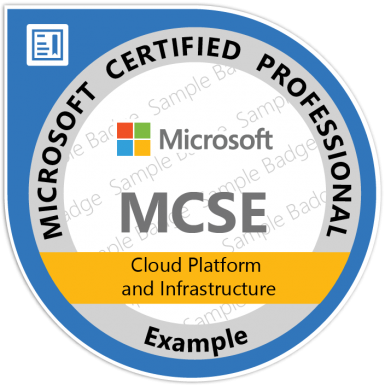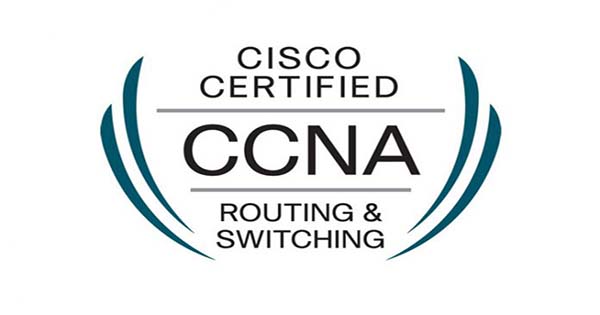
The Future of DevOps in Nepal Emerging Trends and Opportunities
DevOps is slowly but surely changing the face of IT in Nepal. One example of an improvement that took place in a Nepali fintech is the story of a large company that lately incorporated DevOps principles in its software development and rollout process, consequently overseeing productivity gains in terms of downtime and greater speed of software releases. This success demonstrates how the DevOps approach continues to help businesses advance, improve delivery velocity, and adapt to change. Seeing this trend on the rise we can assume that even more companies in Nepal will transition their services to digital platforms and as a result, the demand for effective DevOps services will only increase.
Modern DevOps tendencies are evolving the way companies act in the IT market, where such as IaC, CI/CD, and cloud-based technologies come as the new normal. DevOps technologies like Kubernetes, Docker, and Jenkins are helping development and operations teams to develop and deploy applications effectively and at scale doing the same work that would otherwise be time-consuming. Globally, emerging sectors which include fintech, telecom industries, and e-commerce among others are growing in Nepal and these DevOps trends are creating fresh opportunities for innovative development to enable clients to deploy more effectively and consistently.
The effect of these trends on the labour market within the country will be significantly observed in Nepal. With firms turning to DevOps practices for the development and operation of software solutions, there will be a high demand for human capital experienced with the usage of these tools and technological applications. Industry-related training and certification in some of the advanced DevOps practices will start becoming mandatory for any IT professionals who want to remain relevant in this new world.
From this perspective, TechAxis is one of the leading organizations that is training future DevOps engineers. Our courses are based on the needs of the industry, practical and effective training along with qualified instructors to prepare students for a quickly growing DevOps industry.
Cutting-Edge DevOps Practices and Tools
- Infrastructure as Code (IaC): Infrastructure as Code (IaC) is fast becoming a common approach to practising infrastructure management; it emerged as a way to enable organizations to manage and provision computing resources by configuration rather than manual instructions. This approach improves on this by increasing reliability, decreasing the incidence of human mistakes, and accelerating the deployment of solutions. With IaC, infrastructure can be easily duplicated across environments that’s why it has proven to scale easily. Automating the process of provisions in infrastructure is achieved by using popular tools like Terraform and Ansible. Terraform has been used to share capabilities that allow organizations to implement consistent infrastructures across multiple clouds or a hybrid cloud environment. Also, Ansible does an amazing job with configuration management and application deployment which places it in a good position to replace a lot of tools when it comes to automation. Both of them ensure that infrastructure is always scalable, secure and as per organization’s requirement.
- Continuous Delivery and Deployment (CI/CD): CI/CD stands for Continuous Integration and Continuous Deployment and this is a basic practice of DevOps, which helps to reduce the development life cycle of the software applications by integrating the features built and testing and deploying them automatically. In less than 10, probably automated pipelines are already allowing developers to deliver code with fewer chances of mistakes. CI/CD stands for Continuous Integration and Continuous Deployment, which entails changes made in code that are integrated, tested, and deployed bringing feedback and avoiding a lot of downtime. Applications that are used to put into practice CI/CD are Jenkins, GitLab CI, and CircleCI. Jenkins is an open-source automation server that supports continuous integration and GitLab CI is integrated with the GitLab platform offering version control as well as the CI/CD pipeline. CircleCI sharpens the definition of CI/CD pathways to ensure application delivery is as quick as it is accurate and, hence trusted.
- Containerization and Orchestration: Containerization is another process that has come to mark most technologies in the modern DevOps process; here, developers can embed their applications and their dependencies in light containers that can be run across various infrastructures. This makes application deployment more reliable and easy. The tool that is currently used is called Docker which can be used to create more containers and deploy containers. Although dealing with multiple containers is quite easy they could be a lot complicated once they are many and this is where orchestration tools such as Docker Swarm and Kubernetes come in handy. Kubernetes is currently the most popular orchestration tool to automate the deployment, scaling up and down as well as management of containers across clusters and as such, necessary for organizations operating microservices and cloud-native applications. There is another tool called Docker Swarm that is tightly connected with Docker and provides less complex and less heavy-weight orchestration for smaller projects.
- Cloud-Native DevOps: Cloud-native DevOps can be defined as an execution of DevOps principles by using the capabilities of cloud platforms and services. This method allows the companies to introduce dynamic scaling and such practices as serverless computing and microservices architecture. Serverless computing provides a platform to develop and deploy applications on a server without having to focus on the underlying environment. Microservices, a cloud-friendly architecture of software construction, splits applications into smaller, loosely coupled services that can be developed, and deployed independently. All together these technologies put together a faster cycle of development, improved utilization of resources, and arguably a high degree of scalability, elevating cloud-native DevOps as crucial to the business organizations that seek to establish themselves in the cloud and grow innovatively.
Impact of DevOps Trends on the Job Market
- Increased Demand for DevOps Professionals: Organizations are now very much aware of the importance of DevOps in today’s technological advancement, and therefore creating demand for skilled DevOps professionals in Nepal at a very fast pace. Different industries are implementing DevOps practices that focus on the relationships between development and operation, improving both productivity and speed when delivering applications. Since organizations are striving to stay relevant in such a world defined by technology they need engineers who can help them integrate and apply DevOps. This increasing demand is providing a multitude of opportunities for individuals who wish to embark on a career or wish to upgrade to a new career in DevOps.
- Required Skills and Certifications: According to the demands of the contemporary workplace and the trends observed in the field of DevOps, there is a list of skills that will become indispensable for a professional. Core competencies involve the use of automation tools, scripting and good knowledge of cloud-related platforms. It is also necessary to know additional tools such as Docker, Kubernetes, and Ci/Cd platforms that are utilized in a project. Also, gaining certifications relating to a given career can go a long way in increasing the chances of employment. AWS Certified DevOps Engineer or Kubernetes Certified Administrator are still widespread and show the user’s desire to achieve more and constantly learn. Because the DevOps industry is constantly changing, a candidate knowing current tools and processes would be most desirable.
- Career Opportunities and Salary Trends: The job prospects are promising for the DevOps specialists in Nepal thanks to the growing interest of the companies in the acquisition of IT workforce in response to their focus on digital transformation. It is expected that positions, which include DevSecOps and SRE, related to incorporating security into DevOps and others dedicated to maintaining system reliability will be in high demand. With demand increasing, Basic salary trends for DevOps positions have taken a positive increment, because of the valuable contribution that the candidates offer to their companies. This move is an excellent chance for the candidates to develop well-paid careers in DevOps, and cultivate themselves as the experts in the field that plays such a crucial role in modern businesses.
Preparing for the Future of DevOps in Nepal
- The Role of Education and Training: It is necessary to develop effective programs that will support qualification improvement for workers and meet the requirements of further development in the field of DevOps. Without a doubt, such trends create a tremendous need not only for knowledge of the corresponding theoretical concepts but also for experience in real projects. That way, the learners get to hone their skills through learning by doing it and sharpen their ability to solve real-life problems, as well as gain important skills for employment. Through the Lab sessions, group assignments, and internships potential DEs can cultivate the skills necessary for the occupation, qualifying education as crucial.
- TechAxis as a Leader in DevOps Education: Being recognised as the primary DevOps Training provider, TechAxis provides fundamental training to those willing to succeed in the field. Being the Best institute for DevOps training, we have a strong curriculum in place that gives them the best tools and methodologies to meet the requirements of the market. In addition, it is gratifying to see the success our alumni have achieved in some of the most competitive occupations in major technology firms proving the efficiency of our training. The well-established connections with key industries also support the learning process, giving the students a closer look at what is being practised today and what may be waiting for them out there.
- Future-Proofing Your Career: First of all, to be successful in the constantly evolving field of DevOps, one has to be aware of the current tendencies. It is immeasurably critical to continue learning and getting knowledgeable as one intends to advance one’s career and to be updated in the marketplace. In this case, there are several options that one can take to ensure that he or she gets updated depending on his or her profession: Online courses, workshops and forums are available to ensure that professional personnel get updated as per their professions. When one embraces lifelong learning, one would be better placed to prepare for new opportunities hard to define in the fluid field of DevOps.
Conclusion
In conclusion, the prospects for pursuing a career in DevOps in Nepal look promising for both individuals and organizations. New wave trends like Infrastructure as Code, Continuous Delivery, containerization and cloud-native DevOps are influencing the market and there is still a high demand for DevOps professionals. Such demand calls for quality courses in the Education and Training institution that should offer working experience and projects. Due to its growth in its DevOps training programs, and its strategic alliances with industries, TechAxis is ready to spearhead this push in the market.
While moving into this promising zone, openness to learning and knowledge updates have to become the key values of the employees dealing with DevOps. When implemented in organizations, DevOps practices may help organizations increase their effectiveness, promote creativity, and protect themselves in a world that becomes significantly digital.
This is the right time for both the person and the organization to adopt DevOps as a means to an end. Experience courses with TechAxis to improve your competencies develop your organizations, and embrace the DevOps revolution in Nepal.











